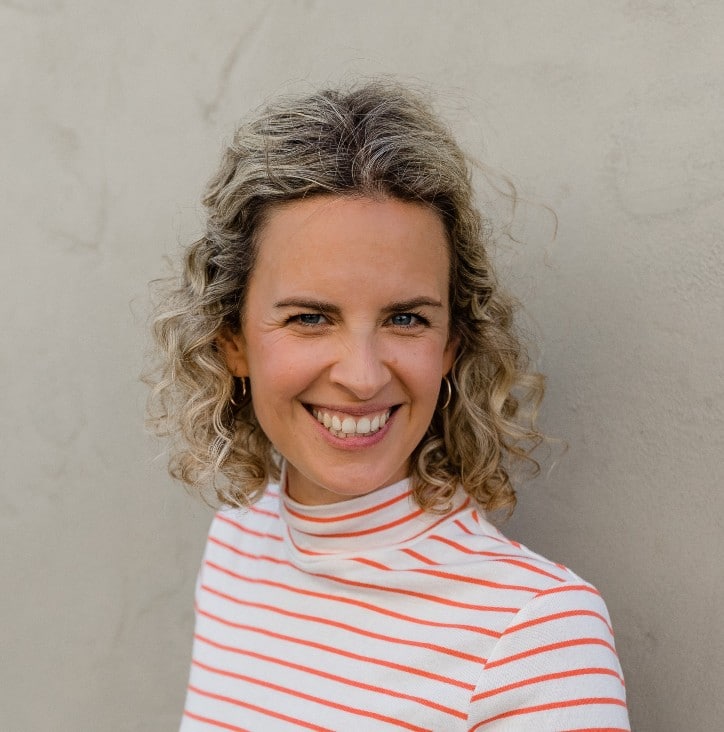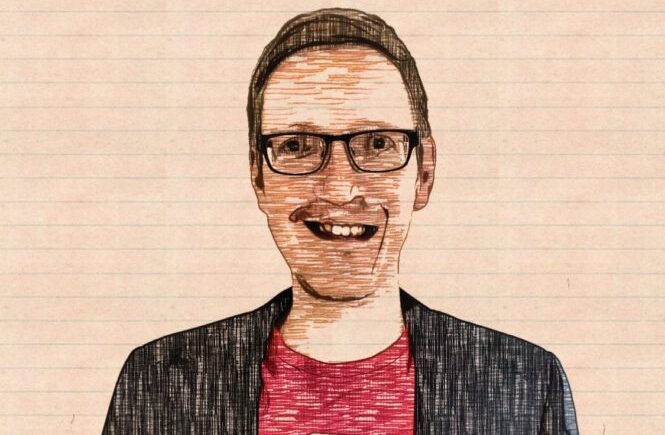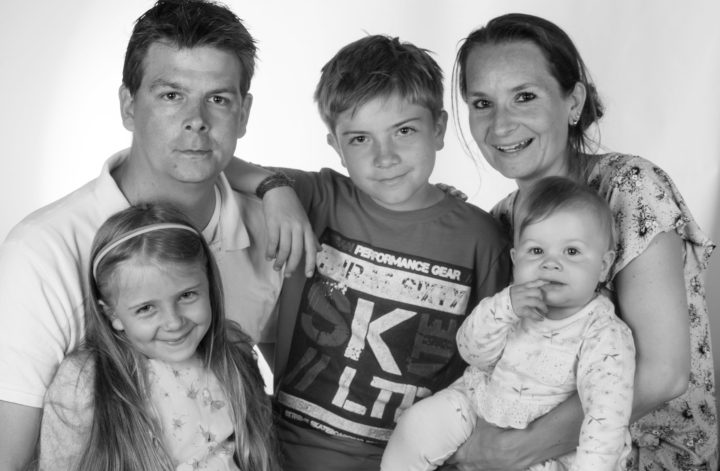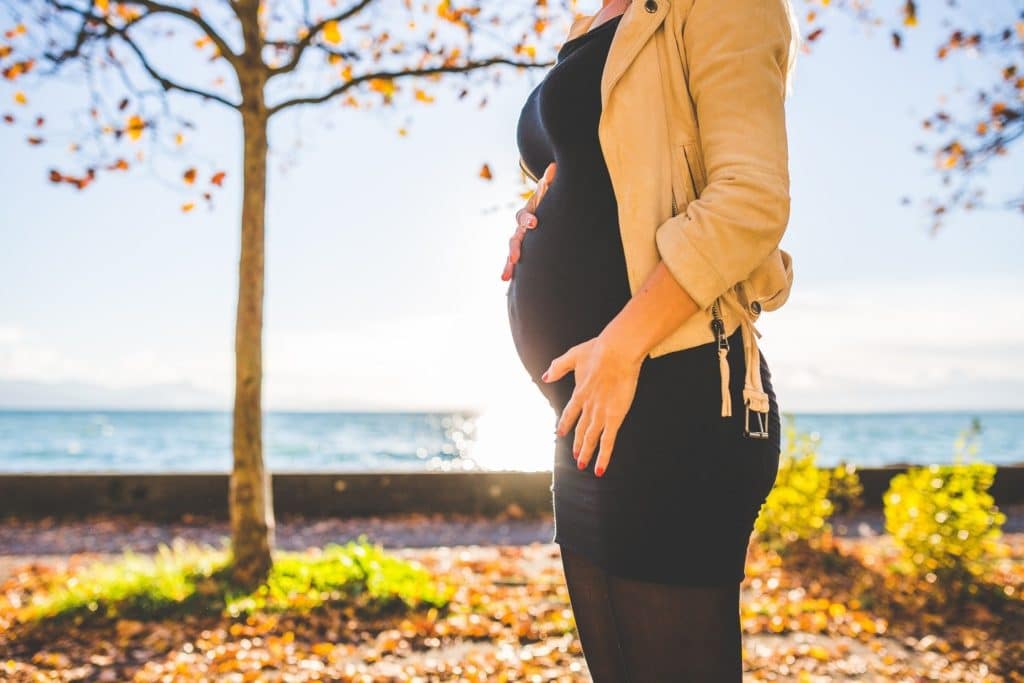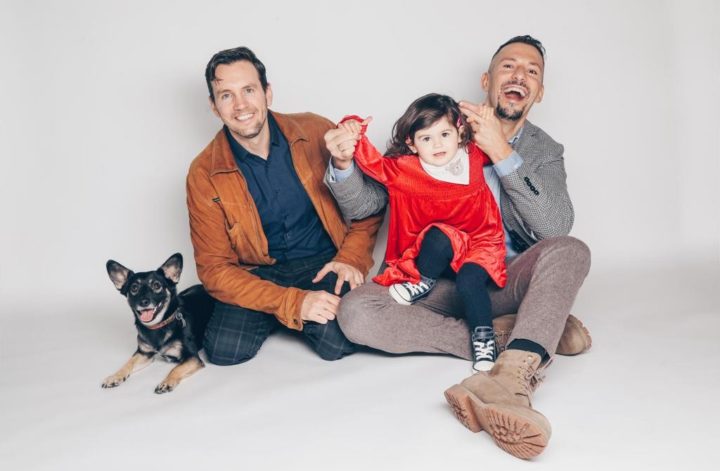Interview with Steffi: How I became a mother through foster children
Dear Steffi, you are a foster mother. Who is part of your family?
My family consists of my husband Björn, our daughter (6.5 years), our son (almost 2 years), and me.
You don’t have any biological children, but two foster children. How did that come about?
We were newly married and planning a baby when it turned out that I had ovarian tumors. Björn took me to the hospital with the words: „Don’t worry, we’ll have children. They don’t have to be biological.“ And that’s how it turned out.
For many couples who can’t have children of their own, adoption is the first option. Have you also thought about it?
Yes, shortly after my hospital stay, I registered us for an adoption information evening at the youth welfare office. Björn was initially totally in favor of adoption and against having a foster child – he was simply afraid that the foster child might be taken away from us at some point. We went to the information evening with the naive idea that we wanted to do something good and that the whole world was already waiting for us. We were very wrong – for every 800 children, there are a good 6,000 pairs of parents who have already been tested. We had to swallow hard at first.
What happened next?
I went for a walk with a neighbor who already had a foster child and therefore had a lot of experience. She told me a lot about foster children. When I got home, I discussed everything with Björn. Then I called the youth welfare office and asked about the next information evening for foster parents. As luck would have it, there was an event on the same evening. So we went, listened to everything, and knew that we would do it. Within three weeks, we had all the necessary documents together and sent them to the youth welfare office. We attended a training course and had a few appointments with the youth welfare office. Then we had to wait.
When did the first child come to you? And what condition was it in?
After a few months, we received the long-awaited call that a little girl was looking for a new home. She was five months old and had been born prematurely in the 28th week of pregnancy. We accepted and then met the birth parents and later the child. After that, we had what is known as a ‚pre-natal meeting,‘ during which the little girl and we were able to get to know each other. Two months after the call, she moved in with us from on-call care. We noticed that she was somehow in her own world. We carried her almost non-stop for the first few months, and my husband always said that she needed to recharge her batteries. If you know her story, that sounds logical. She was born prematurely, and her biological parents simply stopped coming to the hospital from the third day onwards. So the little girl had to fight her way through this difficult time all by herself. Even though the doctors and nurses certainly did everything they could, they couldn’t replace mom or dad. Today it is clear that this has left her traumatized. She struggles with emotional attachments.
When did your son come to you?
On the Friday before the first day of Advent 2016, we received the long-awaited call that there was a seven-week-old boy. We went to the youth welfare office on Monday and saw him for the first time. He moved in with us the very next Friday. He is doing great, is happy and healthy, and enchants everyone with his laughter.
What do you think: what do foster children need most?
Security, reliability, an incredible amount of love. And also a lot of understanding, the willingness to accept them as they are. I also believe that it is important to accept the family of origin and not to demonize them. At some point, the child will come to terms with their biological parents.
Do you sometimes reach your limits?
Yes, we regularly reach our limits – especially with the older one. Because of her past, she has a very low frustration tolerance and regularly explodes. She just doesn’t „work“ like most other children. It takes her much longer to do many things, and she is now aware of this. This, in turn, makes her doubt herself even more. In order to support her better, we do a lot of further training. I’m currently doing further training in special needs education. My husband and I have also been attending a so-called step parenting course for a year now, especially for foster parents.
What are your rights and duties as foster parents?
Our duties are no different from those of biological parents. Our rights, on the other hand, always depend to some extent on where custody lies. In the case of the older child, custody lies entirely with the biological parents. The little one currently has a guardian.
If custody is still with the biological parents, you have to get the parents‘ consent for everyday decisions such as vaccinations or which daycare center the child should go to.
That’s right. That hasn’t been a problem for us so far – neither for vaccinations nor for choosing a nursery or school. We also have permission from the biological parents for school trips and surgeries. However, if we were to go on vacation outside Europe, we would have to ask again and get written confirmation that we are allowed to take the children with us. That sounds like a lot of effort, but I don’t think it is because it is relatively rare that you have to contact the biological parents.
How long will the children stay with you?
Both fostering relationships are designed to be permanent. Unless you deliberately have on-call or short-term care, this is actually the rule. Over 90% of children NEVER go back to their biological parents.
Are the children’s biological parents an issue in your home?
Yes, we are currently dealing with this issue with our older daughter. You always have to discuss it in an age-appropriate way and preferably when the child feels the need to do so. We think it’s very important that it’s not a taboo subject. If the children ask, they simply ask, and we act on instinct. However, we never speak ill of the biological parents; it’s not our place. At the end of the day, the children have to make up their own minds about their parents later on.
What are the requirements for taking in a foster child?
To become a foster parent, the partnership should have existed for more than 3 years. You should have a regular life and a job. A police clearance certificate is required, and you also have to make yourself „clean“ – which makes sense so that the children really do end up in good families. Of course, you should be prepared to cooperate with the youth welfare office and, to a certain extent, with the family of origin.
What have you learned from being a foster parent?
You become more tolerant; a foster child is always a bit like a surprise egg – although it’s the same with biological children. You just have to get involved with the foster child. I think our development has been wonderful: we were strangers, and now we are a family. I love them, and they are my children. I want to encourage them: Family doesn’t always have to mean biological children.


